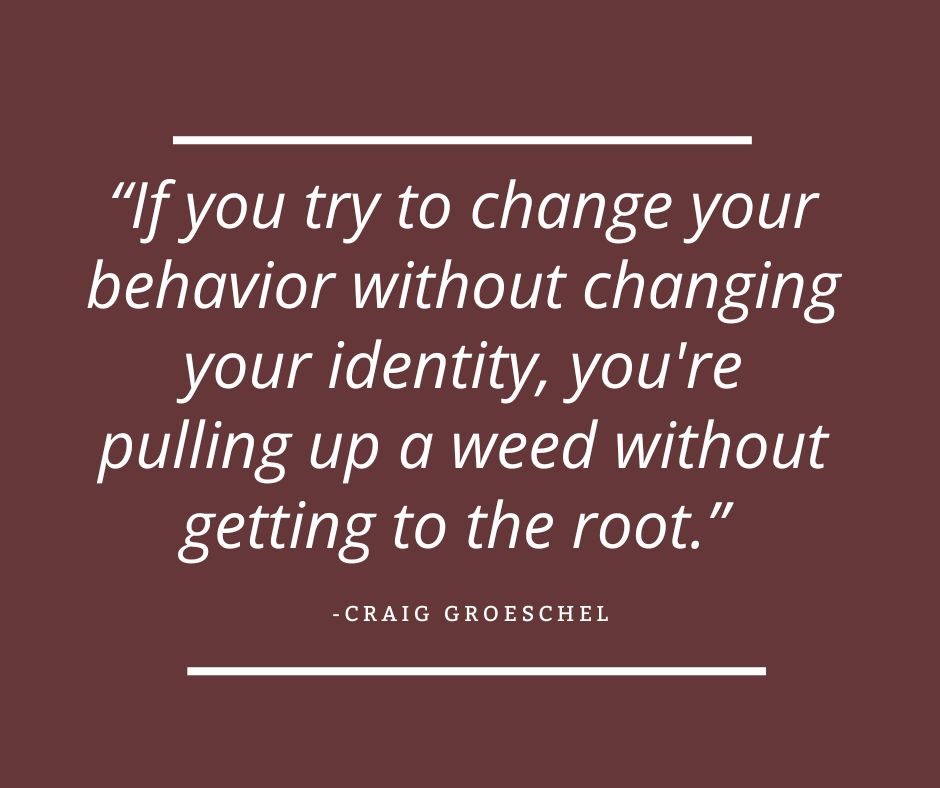You in Five YearsÀpẹrẹ


Two things sustain change in our lives. First, change begins with our identity.
Change doesn't begin with what we do; it begins with who we are. Consider what Paul wrote In 2 Corinthians 5. "From now on, we don't know anyone from a worldly perspective. Even if we have known Christ from a worldly perspective, yet we no longer know Him in this way. Therefore, if anyone is in Christ, he is a new creation. The old has passed away, and see, the new has come."
Sadly, as a pastor, I often see Christians approach change through behavior modification. However, the latest scientific research affirms what Paul wrote 2,000 years ago. The way to sustain change is not by modifying your behavior but through what's called "identity-based change."
For example, author James Clear recommends a small language shift for those trying to quit smoking. When someone asks you to smoke, the common response might be, "I'm sorry, I'm trying to quit smoking." That path of behavior modification will be tough for you to sustain.
According to Clear's research, the better way is not to reply to the invitation for a smoke with, "I'm trying to quit." Instead, you could state, "I'm sorry, I'm not a smoker anymore." The first statement was about modifying behavior, and the second was about a new identity. You're claiming your identity as a new creation!
In his book The Power to Change, Craig Groeschel wrote, "If you try to change your behavior without changing your identity, you're pulling up a weed without getting to the root."
For me, my challenge has not been smoking but my struggle with insecurity and anxiety. Trying to push away those feelings didn't help me. I had to see myself differently and believe what God says about me.
I often return to a list of things that remind me of who God says I am.
In Genesis 1, I discovered God created me in His image. In Ephesians 2, I read that I am God's masterpiece. Romans 8 says that I am victorious. Philippians 1 says that God isn't finished with me and won't stop until He is. Romans 8 says that nothing can separate me from God's love. Ephesians 2 tells me God created me to do good things God planned long ago. According to Ephesians 2, I didn't save myself; God's grace did. In 2 Corinthians 5, it says that I'm a new creation. Romans 8 says that I'm filled with the resurrection power and not condemned. John 8 says that I am free. Romans 8 says that God chose me and adopted me into His family.
Meditating on those truths daily has empowered me to slowly begin to trust that what God says about me is the truest thing about me. If you've struggled to make changes in the past, you need to start addressing your identity before you address your activities. At the end of this plan, I will share a tool to help you in this area if it's a struggle.
Tomorrow, I'll conclude this plan by sharing the second thing to help you sustain change as you ask God to shape who you become in the next five years.
Ìwé mímọ́
Nípa Ìpèsè yìí

What would you see if you closed your eyes and imagined yourself in five years? The decisions we're making today are making the people we are becoming in five years. Like the interest in our accounts, our choices compound, too. In this plan (inspired by a Levi Lusko sermon), Scott Savage explores who we're becoming and how the gospel allows us to change in a world where people don't usually change.
More









